The Red Envelope: Billkin and PP Krit’s Take on a Love Story Beyond the Grave
In a cinematic landscape saturated with remakes, reboots and sequels, you might ...
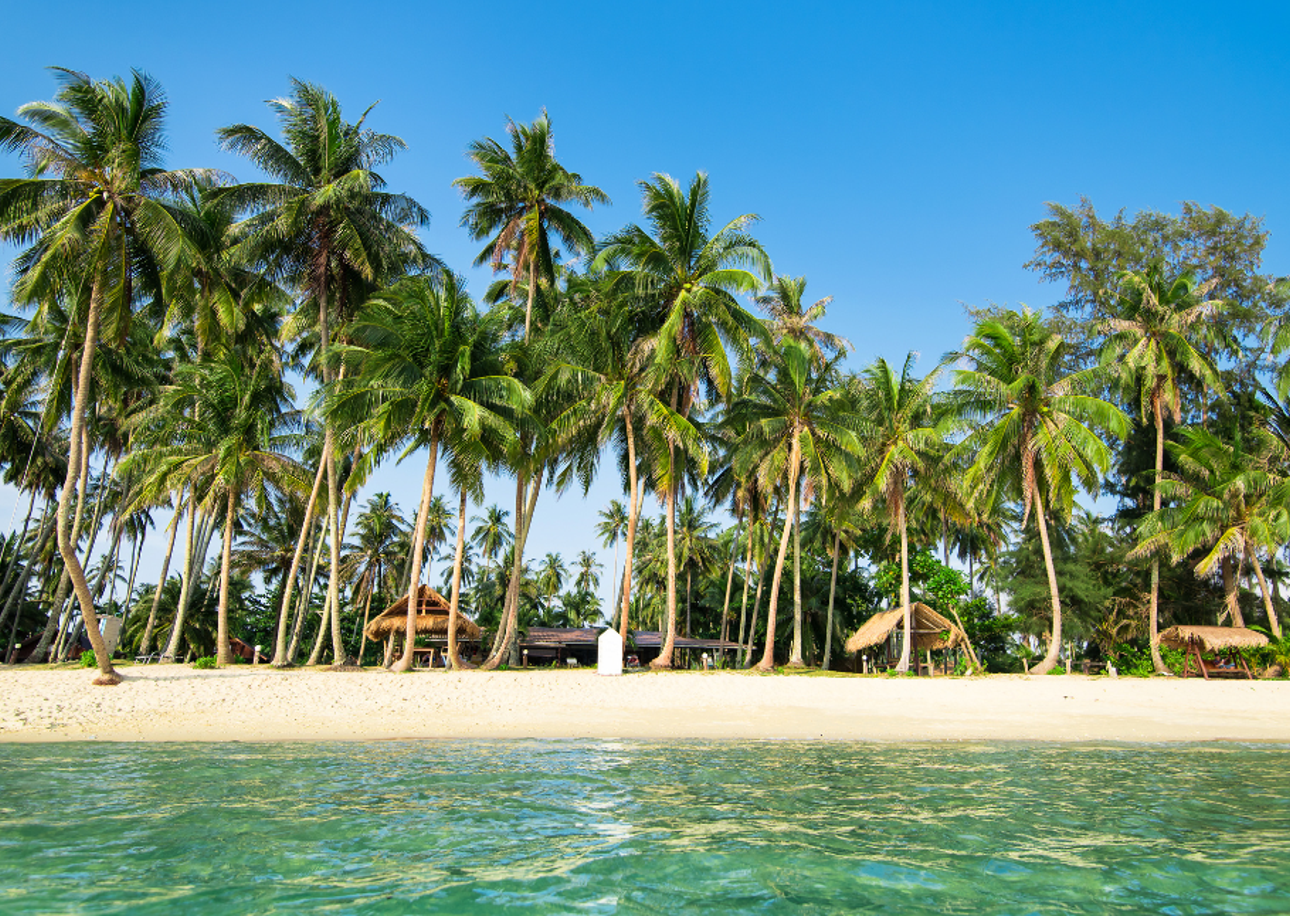
This article explores the simplicity and depth of Thailand’s coconut-centric culture, highlighting how this versatile fruit influences daily life and traditions in the kingdom.
In Thailand, the coconut is intertwined with daily living and traditions. It’s not uncommon to see Thais offering coconuts at temples, a gesture that symbolises purity and spiritual fulfilment. It also plays a role in traditional Thai healing practices, where coconut water and oil are used for their medicinal properties.
The coconut palm has been integral to human life in the tropics for thousands of years, serving not only as a source of food but also as an essential material for building, clothing, and more.
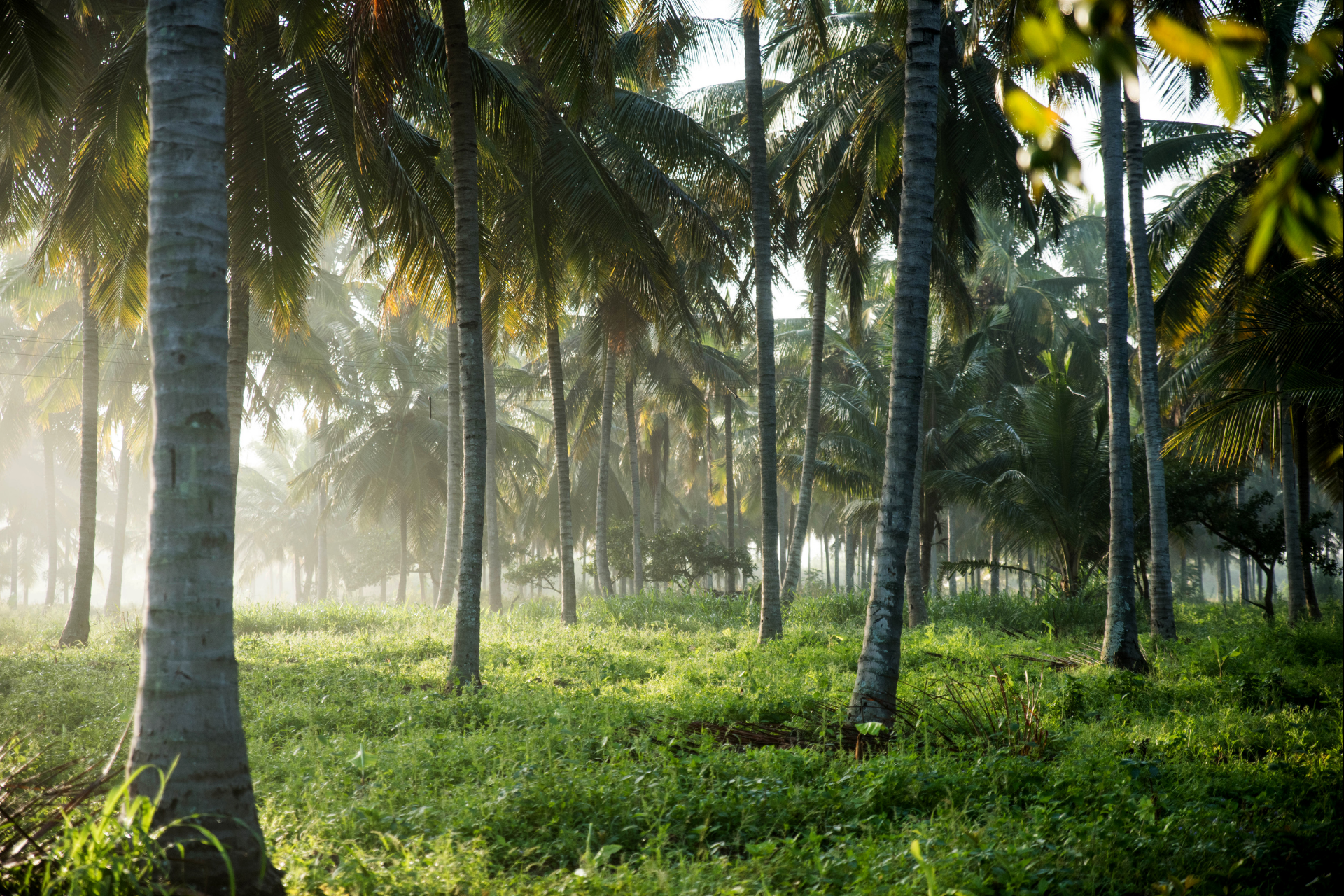
The coconut industry is a significant part of Thailand’s economy. Thai coconuts are famous worldwide for their superior quality, especially the aromatic and sweet water that young Thai coconuts provide. Beyond the local markets, Thailand exports a significant amount of coconut products, including milk, oil, and desiccated coconut, contributing to the livelihoods of thousands of farmers. Husks and shells are utilised in the production of fibres, charcoal, and handicrafts. This versatility makes the coconut palm an invaluable resource for many communities.
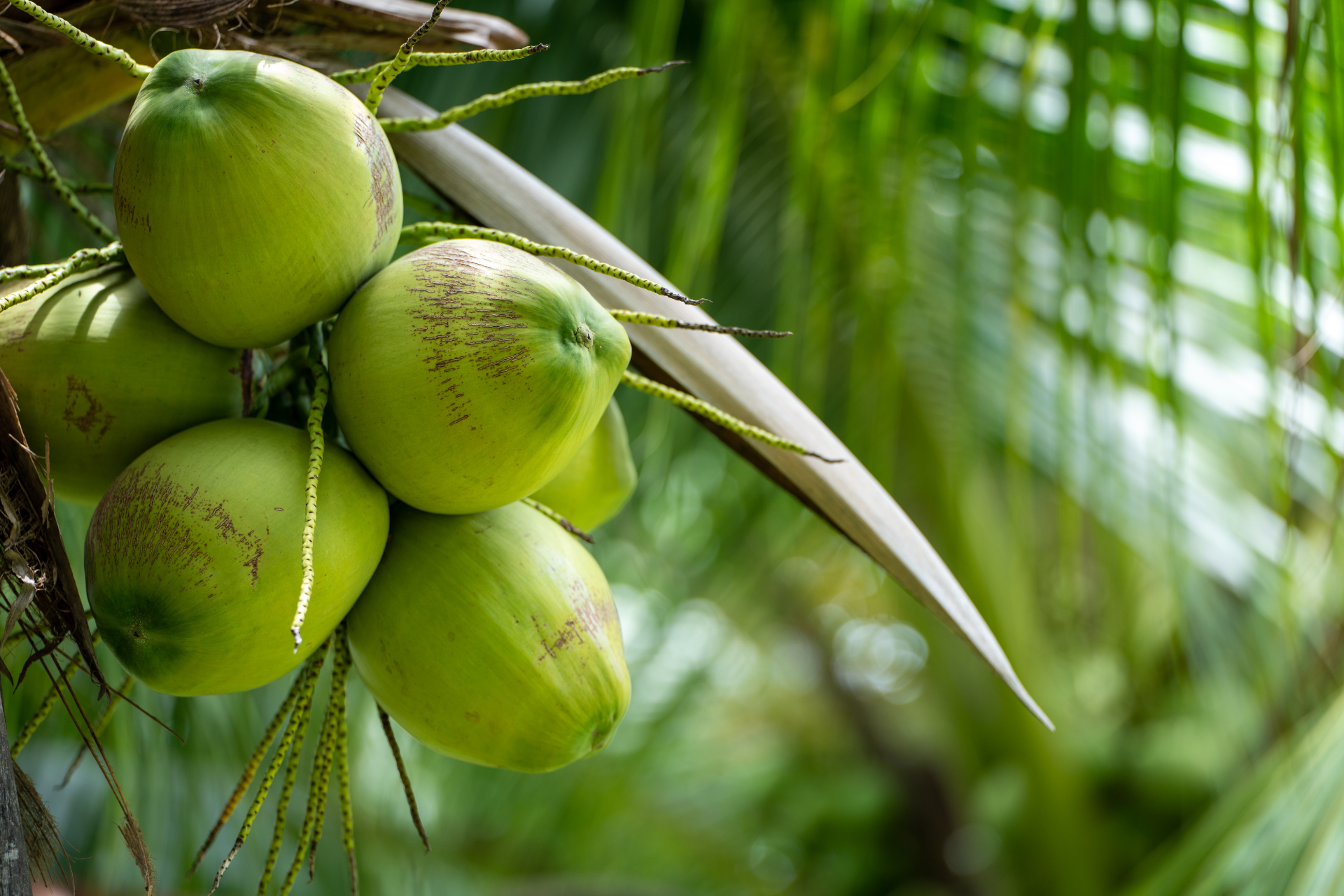
Thai cuisine showcases the coconut in all its glory.
Coconut milk and cream add richness and depth to famous dishes like Tom Kha Gai (chicken in coconut soup) and various Thai curries. Coconut oil is used for frying and baking, while fresh coconut meat is a delightful addition to desserts and snacks. The use of coconut in Thai cuisine reflects the fruit’s versatility and the creativity of Thai cooking.
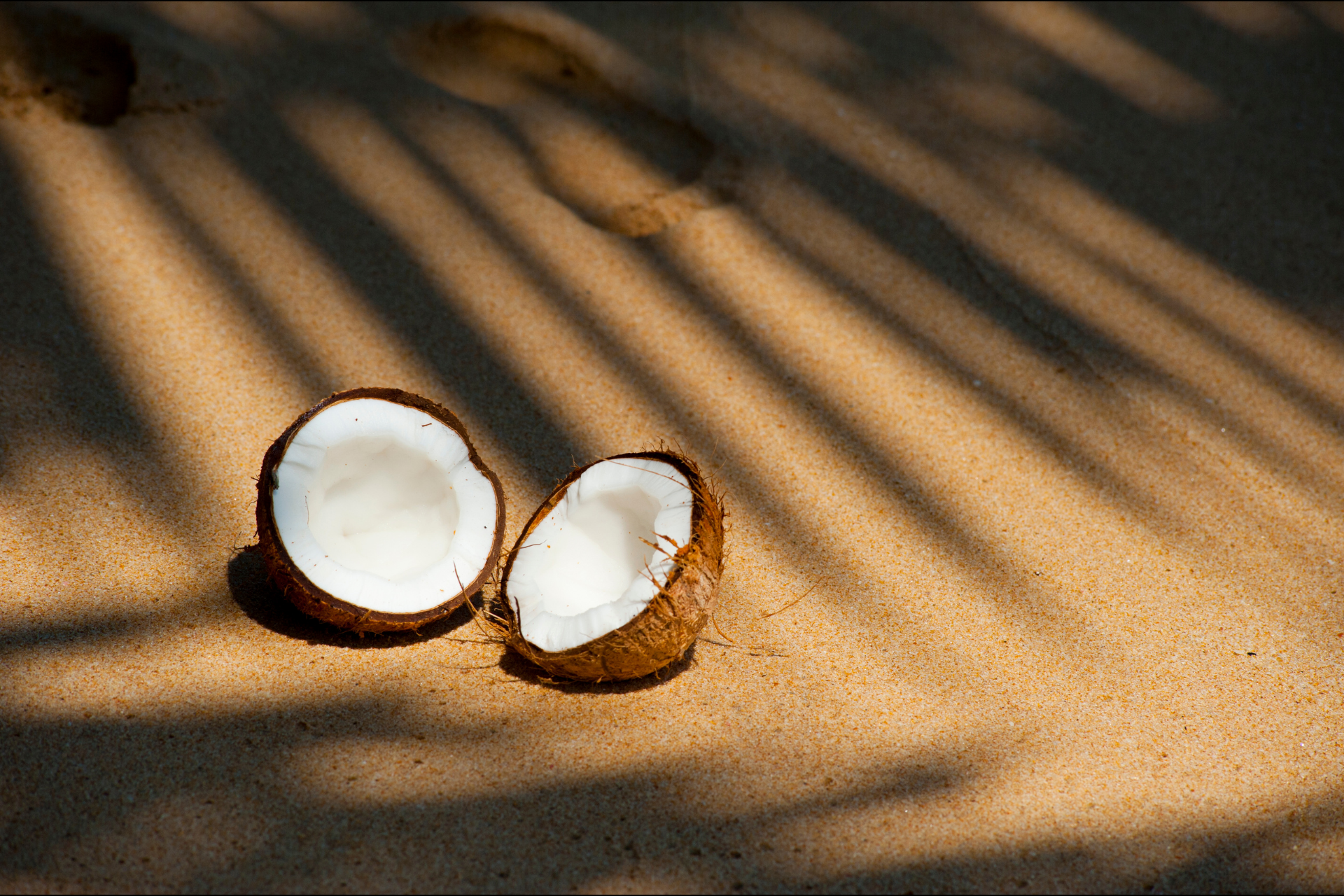
Coconut milk and oil are staples in the cuisine of many tropical regions, imparting rich flavours to dishes such as curries, stews, and desserts. The water inside young coconuts is a refreshing drink, while the meat can be eaten fresh or dried to produce copra. In some cultures, the fermented sap is used to make traditional alcoholic beverages.
In Thailand, coconuts also play a role in protecting the environment. Its trees are often planted to prevent soil erosion, especially in coastal areas. Their ability to thrive in sandy soils and withstand saline conditions makes them ideal for protecting Thailand’s beautiful beaches and shorelines.
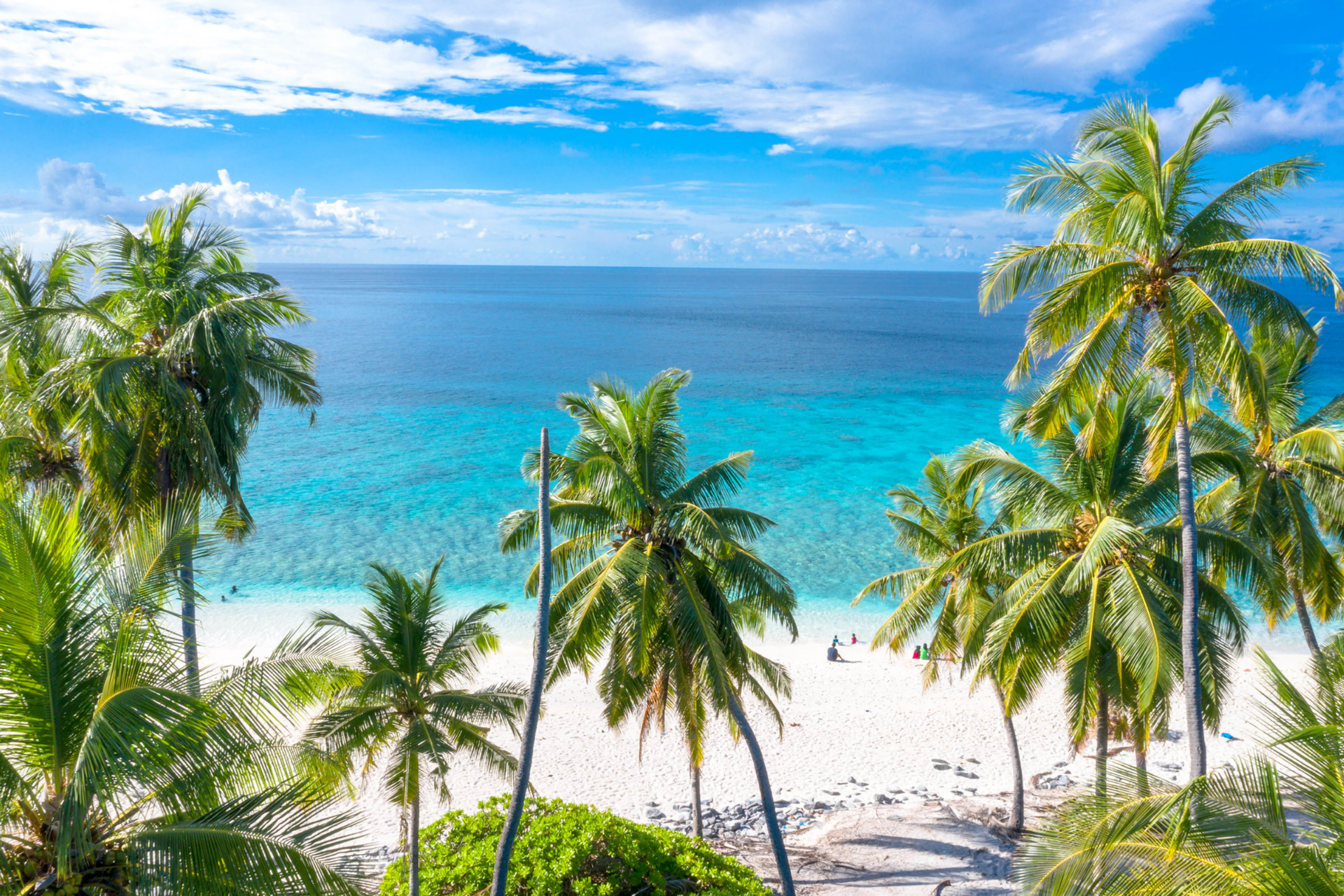
Thailand’s relationship with the coconut is a beautiful example of how a single tree can influence a nation’s culture, economy, and environment. From the sacred temples in the north to the sun-soaked beaches in the south, they are a symbol of life and prosperity.
Through its simple presence, the coconut has woven itself into the fabric of Thai life, embodying the harmony between nature and culture in this lush tropical land. The universal appeal and utilisation of the coconut continues to spread its cultural significance far beyond its origins.
In a cinematic landscape saturated with remakes, reboots and sequels, you might ...
These top 5 barber shops in Bangkok are where gentlemen can elevate ...
While traditional TV shows are serving us endless boy-meets-girl tales. Thailand has ...
Must-have gadgets for kids in the Y2K are, predictably, making a comeback ...
Stay ahead of the curve with these three must-visit new restaurants in ...
See how Kim Steppé’s early passions, family values and entrepreneurial spirit continue ...
Wee use cookies to deliver your best experience on our website. By using our website, you consent to our cookies in accordance with our cookies policy and privacy policy